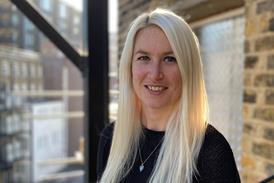- Home
- Intelligence for Architects
- Subscribe
- Jobs
- Events

2025 events calendar Explore now 
Keep up to date
Find out more
- Programmes
- CPD
- More from navigation items
We need to talk about working in oppressive regimes

The profession’s responsibilities extend beyond the physical environment to the political, argues architect-turned-contractor Siu-Pei Choi
I left behind my life in architecture two years ago and have found myself reflecting on the move to work contractor-side, recalling my first days at Wates. Every new member of the company is made to jump through the obligatory training hoops, with online courses aimed to keep us personally safe on site – asbestos awareness, alcohol and drug awareness, hazardous substances – as well as to keep us within the law – anti-bribery and corruption, modern slavery, data privacy. In addition, Wates has its own code of conduct and a “respect for people” module for new starters, with the company mantra of “zero harm”.
To someone coming from the smaller world of architectural practice, it was a long way off from the accustomed norm of being handed a copy of the company handbook (if even this existed) to add to a mounting pile of “things to read” and a quick half-hour induction of where files are kept on the server. Induction at Wates was a different process altogether.
…
This content is available to registered users | Already registered?Login here
You are not currently logged in.
To continue reading this story, sign up for free guest access
Existing Subscriber? LOGIN
REGISTER for free access on selected stories and sign up for email alerts. You get:
- Up to the minute architecture news from around the UK
- Breaking, daily and weekly e-newsletters
Subscribe to Building Design and you will benefit from:

- Unlimited news
- Reviews of the latest buildings from all corners of the world
- Technical studies
- Full access to all our online archives
- PLUS you will receive a digital copy of WA100 worth over £45
Subscribe now for unlimited access.






